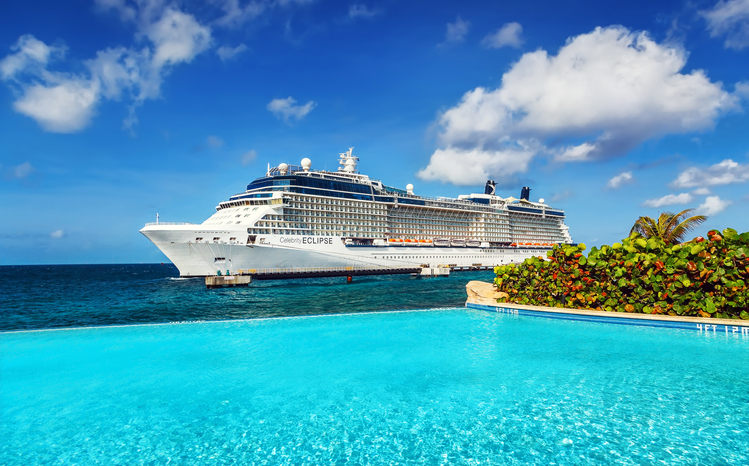In the midst of this COVID-19 isolation period, we hoteliers are all mulling over how travel behavior will change and where customers will come from following the end of lockdown. One thought therein pertains to the conversion of cruise travelers; the going argument being that cruise lines have gained near-permanent notoriety as ‘floating petri dishes’ during this whole ordeal and that many leisure consumers will opt for traditional hotels because of this stigma.
But it would quite naive to make this broad conclusion, and indeed some recent stats are pointing towards an entirely revigorated cruise industry once the dust settles in 2021. Where this may have dire consequences for hoteliers, though, is in the underlying reasons for why such a remarkable recovery might take place.
In the short-term, hotels have a definitive advantage over cruise ships. Travel restrictions won’t be lifted all in one fell swoop but will be staggered, with domestic flight routes returning to normal before intercontinental or long hauls come back. This favors local staycations, revenue gains from drive markets and incoming air travelers only from nearby territories.
A gradual rollout also means that many ships may still be collecting dust while this restoration gets underway, meaning that guests looking for something within a fairly tight booking period will only have hotels or alternate lodging providers to consider, regardless of whether or not they were cruise travelers. Once the all clear is given for international voyages, however, cruise lines will likely come out swinging with very attractive promotions and heavily-promoted cleaning measures.
By necessity, cruise lines will be forced to take draconian measures to eliminate their current petri dish narrative. One potential outcome in this regard that has been floated around is the deployment of highly intensive disease screenings for guests prior to disembarking.
Suppose instead of the standard same-day turnaround for each ship, the cruise provider takes an additional 24 hours to fully sterilize each cabin and common space as well as complete a dockside virus check (coronavirus as well as flu or any other trending pathogens) of every passenger prior to boarding. A positive test means no entry and perhaps a partial refund, all part of a new waiver each guest must sign at booking. While the additional day in turnaround time is a huge cost increase, even combined with a public relations blitz it will restore customer confidence.
As more contiguous operations, traditional hotels cannot provide this same feeling of hygienic protection because we are rarely afforded any such intervals when a full-building deep clean can be performed without any guests in-house. Moreover, would it even be legal for a hotel to prescreen guests outside the lobby entrance and then deny entry if one tests positive?
Matters of law aside, what’s significant in this scenario is how safe customers feel in choosing one travel option versus the other. The pandemic will inevitably subside but what has been coined as ‘post-coronavirus stress disorder’ (PCSD) will persist for years after. That is, even with an all clear from trusted government sources, many will still be hesitant to resume pre-pandemic travel behaviors or will experience palpable anxiety in high touch places like airports, conference centers or large hotels.
Our hypothesis is that a leisure traveler with signs of PCSD will be more inclined to opt for a cruise in lieu of a well-trafficked hotel or resort because the former industry (once their advanced prescreening and sanitization protocols are in place) will be deemed as the safer choice. On a macro-level, this could result in many hotel customers transitioning to cruises, cajoled even further in that direction by price discounts designed to fill ships to the brim and get the cruise lines back in the black as soon as possible.
While hotels may experience big gains come summer or fall as the cruise industry flounders under postponed international travel restrictions, this is never a reason to assume all is back to normal for the foreseeable future.
This cruise surge scenario implies that hotels must act offensively lest each property finds itself unable to compete in terms of modern cleanliness features. While many housekeeping departments have already put in place new SOPs to help stop the spread of COVID-19, these will likely have to remain in place for quite some time to satisfy PCSD travelers. Moreover, hoteliers will have to think of other ways to dispel fears of unsanitary places – including the possibility of guest prescreening – so that customers feel safe and so hotel brands can compete on a feature-to-feature basis with cruises.
The tricky part is that all this has a cost and hotels will have to weigh heightened cleanliness initiatives with the potential for new customers and the ability to increase the room rate. Whereas before the pandemic guests may have selected you over others due to a new restaurant or a renovated lobby, now they will have a much keener eye for amenities that protect them from microscopic invaders, so such investments will be in demand.
The real question, though, is whether hotels can properly adapt and regain travelers’ trust before the cruise lines return with a vengeance.
